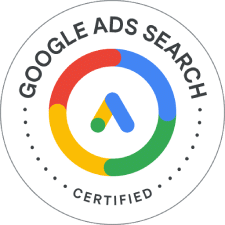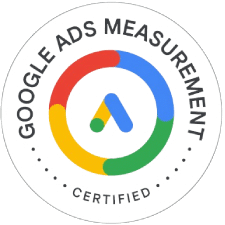The iOS 14.5 framework has brought one of the most significant transformations in Apple’s privacy features. Released on 26th April, this new feature is defined as “App-tracking transparency (ATT).” The company decided to maximize customers’ privacy to address the growing concerns around privacy and security issues.
This new privacy feature is expected to reshape the world of digital advertising since customers are asked whether or not they’d like their activities to be tracked across all apps and websites. So far, the IDFA (Identifier for Advertisers) has been activated on all Apple devices, allowing advertisers to access your mobile data automatically. This option will be switched off, and users must manually grant advertisers the ‘access permission.’
The ATT Framework
Apple’s new move will likely significantly impact the mobile advertising market, as this new privacy feature gives your target audience a chance to ‘opt-out’ of your app and keeps you from accessing the user-level data. Small retailers and e-commerce companies might face difficulty in targeted advertising, as reaching out to the target audience will be super challenging. The ATT framework has reshaped the digital advertising industry, allowing Apple users better control over their privacy settings. This latest privacy function will likely improve Apple’s functionality and strengthen the brand’s image by leaving a positive impression on people.
At the same time, the ATT framework has turned the world of digital advertising upside down, and it’s undoubtedly one of the most impactful changes in ‘privacy settings’ to date. However, we are expecting more similar restrictions to strengthen user privacy. Examples are the “no third-party cookies in your browser” and “private click measurement.” Additional government policies that are designed around customers’ privacy are all pointing to a robust advertising ecosystem. This also indicates that advertising companies must learn to adapt to the new regulations to prepare for these changes.

How does ATT Change Digital Advertising?
The new framework has brought a significant problem for advertising companies relying on the data collected from user behaviors linked across mobile apps and websites. ATT has changed the advertising ecosystem for all digital marketing companies and advertisers. Earlier, it was easy to track how users got to a website/app, which users saw what kinds of apps, and who took actions on the websites after watching these ads. It made tracking easier for people, and the automated tracking of user-lever data translated into high revenues and better overall performance.
Now, these ads will not bring the best results for advertisers. Some industry experts believe that similar changes in the advertising industry are highly likely to occur in the Android ecosystem, affecting the precision and accuracy of advertising for both customers and advertisers. Apple, however, has introduced an innovative approach to help advertisers deal with data unavailability with the help of StoreKit Ad Network or SKAdNetwork.
StoreKit Ad Network, or SKAdNetwork, is a privacy-centric API Apple operates. It helps ad networks and advertisers measure their ad activity (such as impressions, clicks, and app installs) on an aggregated level.
SKAdNetwork is a technical solution designed to make the data available to advertising agencies. However, it is available at a campaign level, meaning there is a limited number of customer activities the advertiser can track for each campaign.
Tips for Adapting to this Changed Privacy Policy
Advertising agencies need to craft their marketing campaigns following the new privacy regulations. Here’s how advertisers can adapt to this change.
Embrace Federated Learning and Differential Privacy
Now is the perfect time for advertisers to adapt to privacy preservation methods to deal with this changing privacy infrastructure. As an advertiser, you must build your marketing campaigns around the latest privacy policies.
For those who have already planned their marketing campaigns, new and innovative technologies help you comply with the privacy settings while delivering a smooth and excellent user experience to your target audience.
Try a More Holistic Advertising Approach
Since Apple has restricted advertisers’ access to customers’ private data and activity information, people should adapt to macro-level advertising techniques. The focus should be more on the performance of the ads, revenue generated, and how these companies can craft platform-specific ad campaigns.
While these methods work wonders, they require data scientists who specialize in achieving statistical sophistication. Fortunately, several tools can help you generate detailed insights using the available data. Not only do they help with digital marketing analysis, but they are designed to incorporate traditional marketing strategies into your campaigns.

Understand Your Audience
The major problem with targeted ads is that they reach a smaller audience. One way to overcome the challenges of niche-based marketing is to develop more appealing products to a broader audience. The more people you can attract through your products, the less you must focus on the targeted ads to connect with your audience. This means you no longer need to rely on the target advertising campaigns. The general advertising will sufficiently communicate with the global audience and generate the best results for your brand.
Adapt Creativity
Creative and well-crafted ad campaigns cannot replace the benefits lost in advertising from the changed privacy infrastructure. However, creative ads can have a lasting impact on your target audience. And they offer a good chance of reaching out to the most relevant set of audiences.
Now that precision advertising is totally out of the picture for advertising firms, creative advertising is the best way to respond to this change. Not only does it help you get the maximum exposure, but the ad creative’ enhances your brand image and makes it look more credible to your audience.
Bottom Line
The iOS’s privacy policy concerning the data identifier might be the most impactful change to the advertising ecosystem. However, changes like these are expected to be released in the coming years to improve the digital ecosystem and make it more efficient for users. While these changes will significantly impact your targeted advertising, they also allow advertisers to revamp their marketing strategies.














